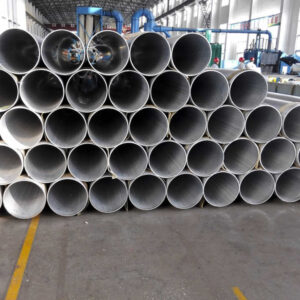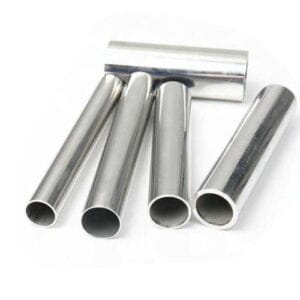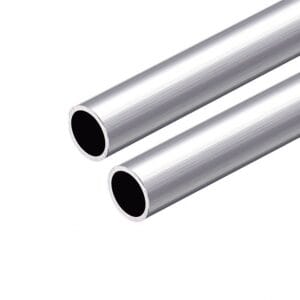Aluminum foil is everywhere — in home kitchens, restaurants, and food factories. From baking and grilling to storing leftovers, it plays a key role in modern cooking. But many people still ask: “Is it safe to cook with aluminum foil?” Others wonder, “Why do we even use foil in the first place?”
In this guide, we’ll answer both questions in detail. You will learn why aluminum foil is safe. You will see how it works in cooking.
You find out what the science says. You will also learn how to choose the right aluminum foil for food. We’ll also share tips on how to source food-grade foil from a reliable aluminum foil supplier

What Is Aluminum Foil and Why Do We Use It in the Kitchen?
Aluminum foil is a thin, flexible sheet made from almost pure aluminum — typically 98.5% or higher. Manufacturers roll it into layers as thin as 0.006 mm to form the shiny, silver sheets we’re all familiar with.
Foil works so well in cooking because it’s:
- Heat resistant — It can handle high temperatures up to 600°F (315°C).
- Non-toxic and food-safe — When made to proper standards.
- Moisture-proof and airtight — It keeps food fresh.
- Lightweight and recyclable — Easy to handle and eco-friendly.
These properties make aluminum foil ideal for cooking, packaging, and storing food.
Whether you’re roasting vegetables, grilling fish, or wrapping sandwiches, foil helps food cook faster and stay fresh longer.
Is It Safe to Cook with Aluminum Foil?
Short Answer: Yes, aluminum foil is safe — when used properly.
Health concerns around aluminum foil often stem from worries about aluminum leaching into food. While it is true that small amounts of aluminum can transfer during cooking, studies have shown that these amounts are very low. They are much lower than harmful levels.
What the Experts Say
Organizations such as:
- U.S. Food and Drug Administration (FDA)
- European Food Safety Authority (EFSA)
- World Health Organization (WHO)
All agree that aluminum foil is safe for cooking and food contact, especially when used at standard cooking temperatures.
Scientific Evidence
- Researchers published a study from 2012 in the International Journal of Electrochemical Science. It found that cooking acidic foods, such as tomatoes, reduces the transfer of aluminum.
- The average adult consumes 7–9 mg of aluminum daily from all sources (water, food, cookware), and the body naturally eliminates most of it.
- Cooking with foil adds less than 1 mg of aluminum to food — a very small amount.
Conclusion: Aluminum foil does not pose a health risk when used for regular cooking and baking.
When Should You Be Cautious?
While cooking with aluminum foil is generally safe, there are a few best practices to keep in mind:
- Avoid cooking acidic or spicy foods (like tomato sauce or vinegar) directly in foil for long periods. These ingredients can increase aluminum migration slightly.
- Don’t use foil in the microwave unless the label indicates it is microwave-safe.
- Do not reuse foil with food residue, especially if it’s torn or crumpled — this can affect hygiene.
Pro Tip: Use a layer of parchment paper between acidic foods and foil when baking or wrapping. This adds an extra layer of protection.
ELI5: Why Do People Use Aluminum Foil in Cooking?
Let’s break this down in simple terms.
Think of aluminum foil as a heat-proof blanket for your food. It keeps heat inside, holds moisture, and prevents your food from drying out or burning. That’s why people use it so often in ovens, grills, and even freezers.
Everyday Benefits of Using Aluminum Foil:
- Faster cooking — Foil traps heat around the food.
- Moisture retention — Keeps meat juicy and prevents overcooking.
- Even baking — Distributes heat more evenly across the surface.
- Less mess — Lining pans with foil makes cleanup easy.
- Food separation — Help keep ingredients separate in baking trays or lunch boxes.
It is also super convenient — you can shape it around any dish or food item, and it stays in place without clips or seals.
That’s why both home cooks and professional chefs rely on aluminum foil every day.
Myths vs. Facts About Aluminum Foil
Let’s address some common myths you may have heard.
| ❌ Myth | ✅ Fact |
|---|---|
| Aluminum foil causes Alzheimer’s disease | No credible study has proven this. The scientific link is unconfirmed and widely considered weak. |
| Cooking with foil is toxic | Not true. Regulatory bodies confirm that foil is safe when used under normal cooking conditions. |
| All aluminum foil is safe for food | Not necessarily. Only food-grade foil certified by FDA or EFSA should be used for cooking. |
| You can’t use foil in ovens | False. Foil is oven-safe up to 600°F (315°C). Just don’t block airflow in convection ovens. |

What to Look for in Aluminum Foil for Food Use
If you’re cooking at home, using regular kitchen foil from a trusted brand is usually fine. But if you’re in food production or need to source foil in bulk, it’s important to choose the right aluminum foil for food purposes.
Features to Consider:
- Thickness: Common household foil is 0.016 mm thick. Heavy-duty foil is thicker (0.024 mm+), offering more durability.
- Purity: Food-grade foil typically contains 98.5%–99% pure aluminum.
- Certifications: Look for FDA approval, ISO 9001, SGS testing, or EU food-contact compliance.
- Form: Rolls, sheets, or containers — depending on your need.
- Surface finish: Some foils have non-stick or coated surfaces for better performance.
Why Sourcing from a Trusted Aluminum Foil Supplier Matters
When purchasing foil for industrial or food packaging applications, quality matters. A reputable aluminum foil supplier ensures:
- Reliable product consistency
- Safe materials that meet global food contact regulations
- Customization options for width, thickness, or coating
- Competitive pricing for bulk orders
A trusted supplier can also help reduce your packaging costs by offering custom slitting, laminating, or embossing services — ideal for food manufacturers and processors.
Where to Buy Aluminum Foil for Food Processing and Packaging?
If you’re sourcing aluminum foil for food applications, such as meat wrapping, baking trays, or heat-seal lids, partner with a certified aluminum foil supplier that offers:
- Food-grade materials with full traceability
- Support for both standard and custom specs
- Fast delivery and responsive service
- Global shipping and export documentation
Need a quote or sample? Contact us now to get in touch with our aluminum foil experts.
Conclusion: Why Aluminum Foil Is Still the Best Tool in Your Kitchen
Aluminum foil is safe, effective, and highly versatile. It helps you cook faster, keep food moist, and simplify cleanup.
Used properly, it adds no significant health risk and remains one of the most practical tools in any kitchen — professional or home-based.
Whether you’re preparing meals for a family or packaging thousands of food products, choosing the right aluminum foil for food makes a difference.
For bulk orders, always buy from a trusted aluminum foil supplier who meets international safety and quality standards.






